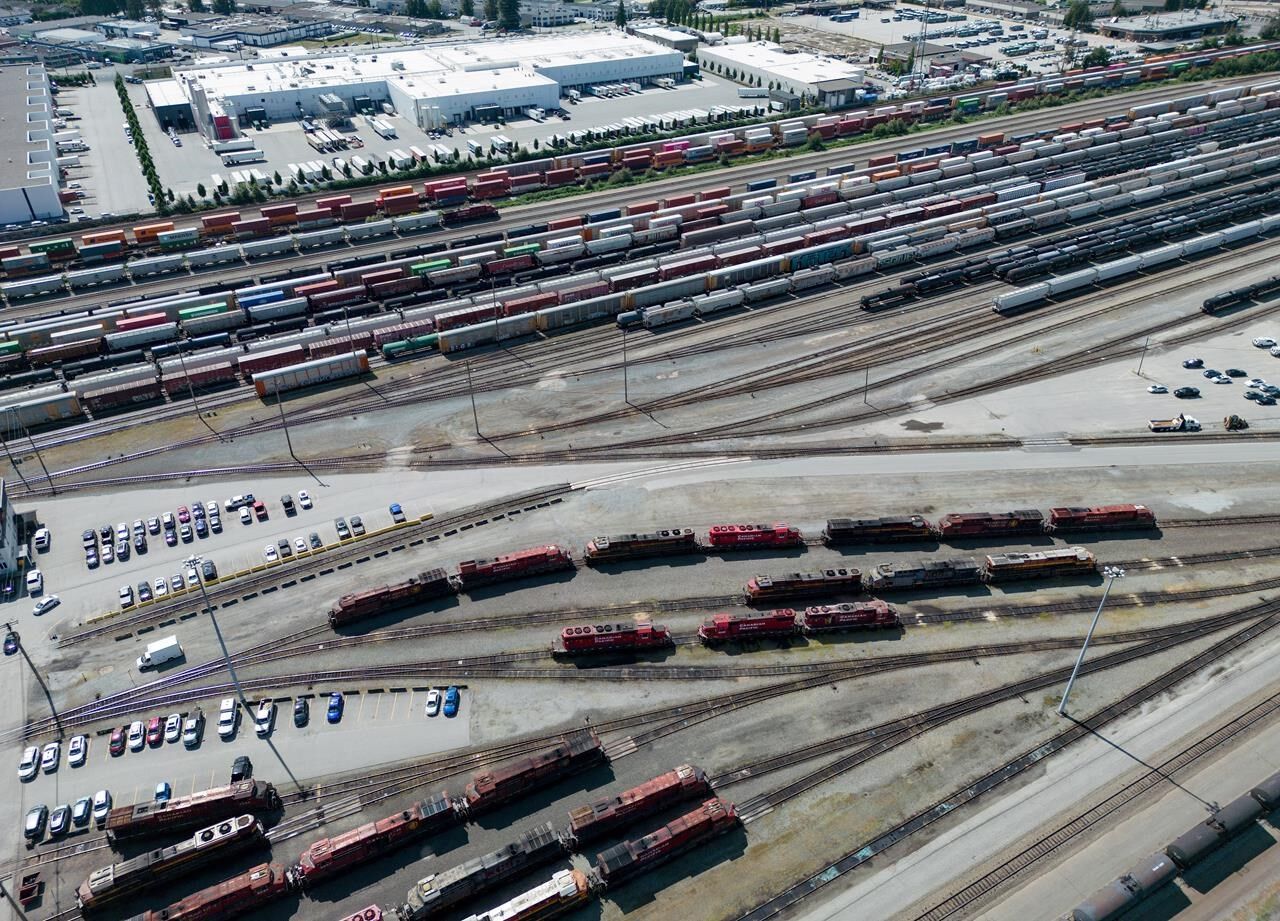
Canada’s Major Railways Lock Out Workers, Sparking Economic Concerns
Early Thursday morning, Canada’s two largest railways, Canadian Pacific Kansas City (CPKC) and Canadian National Railway (CN), took the drastic step of locking out a significant portion of their unionized workforce. This move came after prolonged and ultimately unsuccessful negotiations with the Teamsters union, which represents nearly 10,000 railway workers. The lockout has effectively shut down Canada's freight rail network, triggering a wave of economic worries from both business leaders and politicians.
The dispute between the railways and the Teamsters union has been ongoing for several months, marked by contentious negotiations that failed to produce a resolution. CN announced that without an agreement or binding arbitration, it had no choice but to proceed with the lockout to ensure a safe and orderly shutdown. Meanwhile, CPKC expressed that its decision was aimed at protecting Canada’s supply chains from further instability, particularly during the critical fall shipping period.
Also Read:- Sabrina Carpenter's Latest Teaser Features Jenna Ortega in Unexpected Shower Scene
- UK's Giant Spiders Making a Remarkable Comeback
The Teamsters union criticized the companies for their handling of the negotiations, arguing that the proposed changes failed to address crucial issues such as fatigue management and workers' quality of life. The union alleged that the railways were attempting to manage a labor shortage by extending work hours and distances for employees. Conversely, the railways contended that they had offered wage increases and scheduling improvements to benefit workers and their families.
The lockout has raised alarms about significant disruptions in the supply chain. Business groups have urged the Canadian government to intervene, emphasizing that the railways transport $380 billion worth of goods annually. A prolonged shutdown could lead to layoffs, plant closures, and shortages of consumer goods and raw materials. The Freight Management Association of Canada warned that a two-week stoppage could result in a $3 billion drop in the country’s GDP, alongside substantial losses in wages and business profits.
The impact of the rail stoppage is expected to ripple through various sectors. The Canadian Meat Council has projected that some meat processing plants could lose up to $3 million per week due to delayed deliveries. Similarly, farmers and grain exporters, who rely heavily on rail transport for shipping goods such as wheat and canola, are bracing for significant disruptions.
Despite the gravity of the situation, Canadian Labor Minister Steven MacKinnon has thus far refrained from intervening. He has yet to order binding arbitration or discuss back-to-work legislation, preferring instead to allow the parties to resolve the dispute through negotiations.
As the lockout unfolds, the pressure mounts on the Canadian government to take decisive action. The railways' decision has underscored the critical role of freight transportation in Canada’s economy and the urgent need for a resolution to this labor dispute.
Read More:

0 Comments